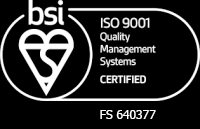In today’s fast-paced world, UK manufacturers face increasing pressure to stay competitive, reduce costs, and improve quality. Enter smart manufacturing, a game-changing approach that’s reshaping how factories operate, products are made, and data is used.
But what exactly is smart manufacturing, and how is it changing the landscape of UK industry?
What Is Smart Manufacturing?
Smart manufacturing is the use of advanced technologies, like artificial intelligence (AI), the Internet of Things (IoT), robotics, cloud computing, and data analytics, to create more efficient, connected, and responsive manufacturing processes.
It’s not just about automation. It’s about using real-time data to make smarter decisions, streamline operations, and adapt quickly to changes in demand or supply chain issues.
In short: smart manufacturing turns factories into intelligent, digital-first environments.
Key Technologies Driving Smart Manufacturing
- Industrial Internet of Things (IIoT) – Machines and devices connected through sensors share real-time data, helping predict failures before they happen and optimise performance.
- Artificial Intelligence & Machine Learning – Systems learn from data to improve quality control, forecast demand, and automate complex decisions.
- Cloud Computing – Enables secure access to data from anywhere, supporting collaboration and faster decision-making.
- Digital Twins – Virtual replicas of physical processes allow manufacturers to test and optimise operations before implementing changes.
- Robotics and Automation – Advanced robots perform repetitive or dangerous tasks with precision and speed, reducing errors and improving safety.
How Is Smart Manufacturing Changing the UK Industry?
- Boosting Productivity – According to Make UK, manufacturers that adopt smart technologies report a 15–20% increase in productivity within the first year. Smart factories eliminate downtime, reduce errors, and speed up production cycles.
- Improving Quality and Consistency – Real-time monitoring and predictive maintenance reduce defects. AI-powered quality checks catch errors early, cutting waste and ensuring higher standards.
- Supporting Sustainability – Smart manufacturing reduces energy use and material waste. For example, Siemens’ smart factory in Congleton reduced its CO2 output by over 75% while increasing production volume.
- Tackling the Skills Gap – While automation reduces the need for manual labour in some areas, it’s creating demand for new digital skills. Smart factories need data analysts, systems engineers, and robotics technicians, roles that attract younger talent and future-proof the sector.
- Enhancing Supply Chain Resilience – After Brexit and the pandemic, UK manufacturers realised the need for more agile supply chains. Smart tech enables better tracking, forecasting, and response to disruptions.
Real-World UK Example: Nissan Sunderland
Nissan’s Sunderland plant, one of the UK’s most advanced manufacturing sites, has embraced smart manufacturing with robotics, real-time analytics, and automated logistics. As a result, it builds a new car every 89 seconds, showing the power of digital transformation in action.
Is It Just for Big Manufacturers?
Not at all. Thanks to falling costs and scalable solutions, smart manufacturing is now accessible to SMEs. Government-backed initiatives like Made Smarter UK are helping smaller manufacturers adopt digital tech and boost competitiveness.
The Future of Smart Manufacturing in the UK
Smart manufacturing is no longer a future vision, it’s today’s reality. As the UK moves towards Net Zero, digital skills development, and global competitiveness, smart manufacturing will play a crucial role in shaping a resilient and innovative industrial base.
Final Thoughts
Smart manufacturing is more than just tech, it’s a mindset shift. It’s about working smarter, not harder, using data to drive decisions, and building more sustainable, efficient factories for the future.
Whether you’re a large operation or an SME, now is the time to explore what smart manufacturing could mean for your business.
Need support adopting smart manufacturing?
BrookConsult helps UK manufacturers assess their digital readiness and implement practical, scalable solutions through tools like the SIRI Smart Industry Readiness Index.
Get in touch for a digital transformation review.





